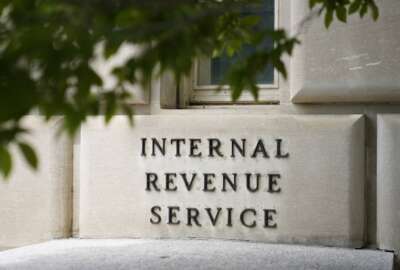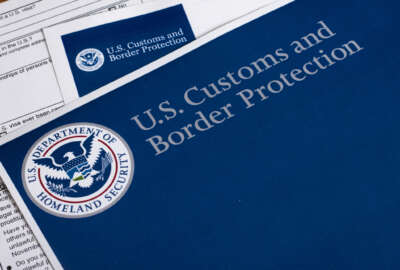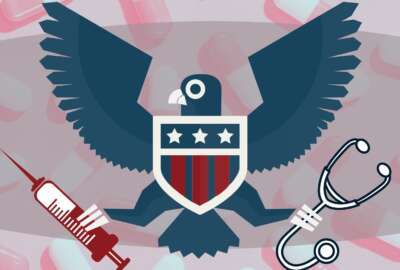OMB names finalists, opens voting for SAVE Award
The four ideas received the most votes over the last four months out of more than 10,000 ideas. This is the fourth year OMB has held the SAVE Awards. The winner...
During a time when Congress and the White House are debating trillions in cuts, sometimes it’s the simple idea that may have the most tangible impact.
Take one idea to limit the use of court reporters or transcribers during federal meetings, or stopping the use of buses to shuttle federal employees between agencies for meetings, both could save the government real money.
These are two of the four ideas that reached the finals in the administration’s annual hunt for money saving ideas. The Office of Management and Budget opened public voting today on the fourth annual Securing Americans Value and Efficiency (SAVE) Award.
The four finalists rose to the top out of 10,000 total ideas, which garnered 12,000 comments and 71,000 votes from 17,000 users. This is the fewest number of ideas, comments and votes in the history of the program. In 2009, OMB received 38,000 ideas; in 2010, it received 18,000 suggestions; last year it received 19,000 ideas.
Few would argue that these ideas will be anything more than a drop of water in an ocean of fiscal problems, but the goal of the administration with the SAVE Awards has been as much around getting rid of long-standing processes that make little sense anymore as it has to save money.
“Over the last four years, federal workers have submitted tens of thousands of ideas to curb unnecessary spending, both in their own agencies and across the government — covering everything from implementing new measures to conserve energy use to cutting back on paper copies of publications already available online like the Federal Register,” wrote acting OMB Director Jeff Zients in a blog post today. “These ideas alone won’t solve the Nation’s long-term fiscal challenges, but they are saving hundreds of millions of dollars and represent common-sense steps to improve the efficiency and effectiveness of government and provide a better value to the American people.”
The finalists are:
- Frederick Winter suggests the government shift employees to senior transit fares when they become eligible for using public transportation. Winter, who works for the Department of Education, said in the Washington area, this change would lower the cost of the employee’s travel by 50 percent, with no loss in the effective benefits for the employee.
- Angela Leroux recommends reducing employee shuttle buses to take employees from one agency to another for meetings. She says too often these vehicles sit idle or travel their routes with just a few passengers. Leroux, who works at the Internal Revenue Service, said agencies could eliminate or consolidate the bus service and encourage the use of conference and video calls, or provide Metro cards to those with a need to travel.
- James Szender said agencies should use digital transcription for all federal meetings and hearings. Szender, who works at the Department of Interior, proposes, whenever possible, using digital equipment for transcripts instead of hiring a court reporter, since using digital transcription is significantly less expensive than contracting with a certified court reporter to attend, record and transcribe the proceedings.
- Laurie Dempsey proposes the Homeland Security Department’s Customs and Border Protection post customs inspection information online at CBP.gov instead of issuing it on paper and requiring it to be posted in the customs house. Dempsey, who works for DHS, said the weekly bulletin lists all imported items that have completed the customs inspection process and can be hundreds of pages long. She said putting the information online would save paper, reduce costs and make it easier for the public to find out what items have been inspected without having to visit the facility in person.
Voting will be open until noon on Dec. 21, 2012 and OMB will include the winning idea in the fiscal 2014 budget request. The winner will get to present their idea to the president as well. Traditionally, OMB also includes other potential money saving ideas in the budget request. Last year, it submitted 26 that came from the SAVE Award contest.
Previous winners included Nancy Fichtner’s idea in 2009 to let veterans take home the medication they receive at the Veteran Affairs hospital instead of throwing it away. In 2010, Trudy Givens of the Bureau of Prisons won for suggesting ending the mailing of thousands of Federal Registers to federal employees.
In 2011, NASA’s Matthew Ritsko proposed a “lending library” to make it easier for agencies to find tools and equipment that others already paid for and could be reused.
RELATED STORIES:
Feds offer ideas on agency cost-cutting
VA to implement SAVE award winner’s idea over the next year
SAVE Award winner cuts printing, postage costs
NASA employee wins 2011 SAVE Award
Copyright © 2024 Federal News Network. All rights reserved. This website is not intended for users located within the European Economic Area.
Jason Miller is executive editor of Federal News Network and directs news coverage on the people, policy and programs of the federal government.
Follow @jmillerWFED






